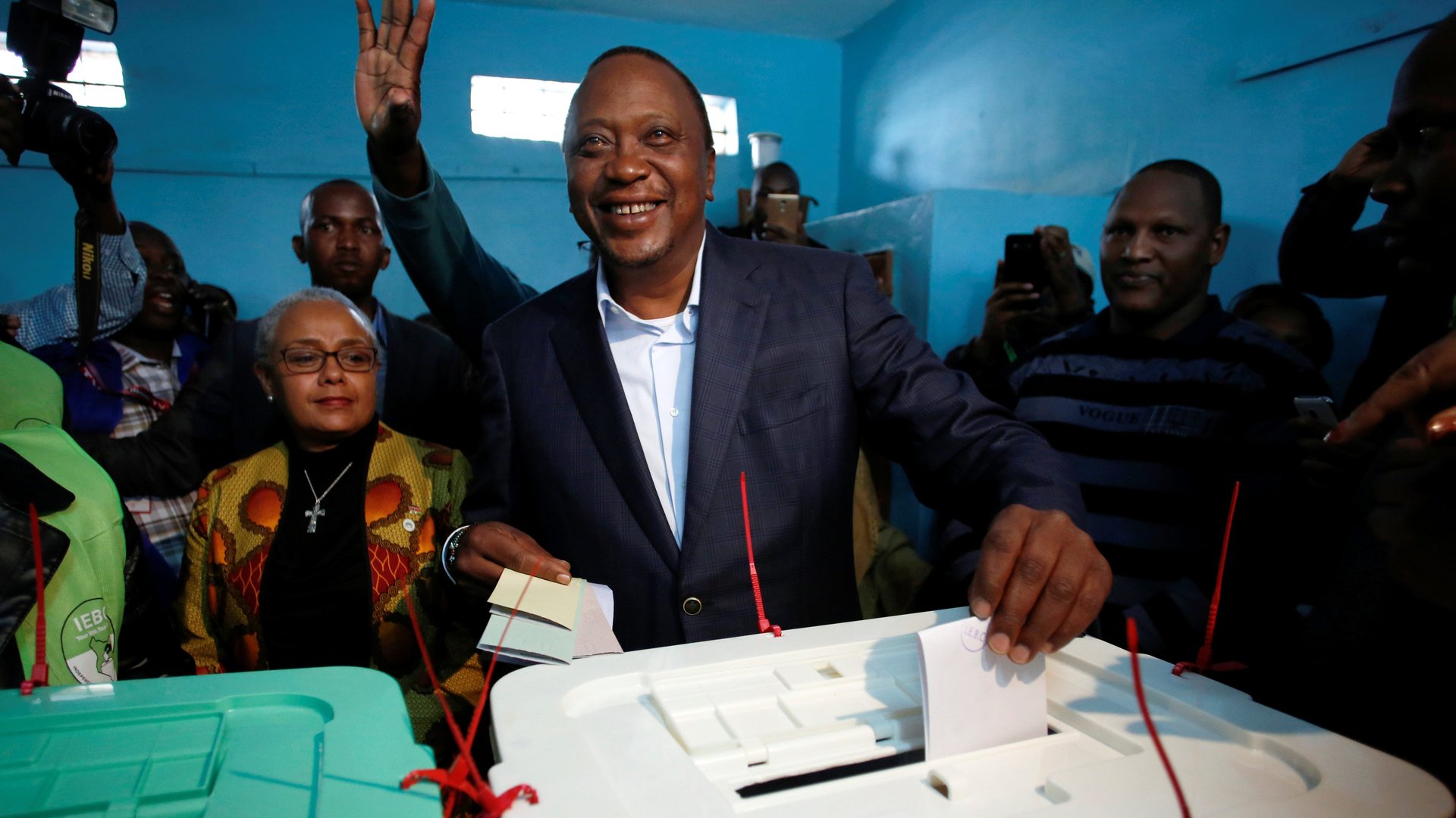Kenya’s president has been re-elected with more than 54% of the vote
Kenya’s president, Uhuru Kenyatta, has been re-elected for a second time, beating his rival and veteran opposition leader Raila Odinga. The final tally put the incumbent president in the lead with over 54.2% of the vote compared to Odinga’s 44.7%—a margin of 1.4 million votes.


Kenya’s president, Uhuru Kenyatta, has been re-elected for a second time, beating his rival and veteran opposition leader Raila Odinga. The final tally put the incumbent president in the lead with over 54.2% of the vote compared to Odinga’s 44.7%—a margin of 1.4 million votes.
“In a true democracy, all Kenyans are winners. All of us are winners,” Kenyatta said in a speech after he was declared the winner. The president also promised that he “shall do everything in my power to lead this country to a much better place than I found it.”
The declaration from the Independent Electoral and Boundaries Commission (IEBC) comes after days of speculation over the tallying of results, which the opposition at one point called “fake” and “fictitious.” On Aug. 8, more than 15 million Kenyans went to the polls to elect their new president as well as representatives in legislative and gubernatorial seats. On Aug. 9, the opposition questioned the reliability of the votes, saying hackers had interfered with the voting system.
A day later, the opposition NASA coalition party wrote a letter to the commission demanding that they stop streaming “unverified” results on their website and declare Odinga president. The call sparked celebrations in opposition strongholds in Nairobi as well as in Kisumu county in western Kenya.
But the commission disputed claims that its system was hacked, and international observers said they were confident in both the electoral and the tallying processes. In response Odinga, 72, criticized the observers, saying they “confounded” the problem and gave “approval to a fairly flawed process.”
President Kenyatta, 55, ran on the promise of delivering improved security and economic stability. Despite some successes in his first term, Kenyatta’s government has been stained by industrial strikes, widespread insecurity, and large-scale corruption. His government also went on a borrowing spree to finance massive infrastructural projects, adding to the country’s spiraling debt burden. Over the next five years, Kenyatta said his government will create 6.5 million jobs, expanding affordable health care, connect more citizens to the grid, enhance food and agricultural production, and invest in science and technology.
Before the results were announced, the opposition said that none of their concerns were addressed and that the commission had “made up their mind” about whom to declare president. They also said that they won’t seek redress in the courts. “This is a disaster. You do not hold an election for the sake of it,” said James Orengo, the chief party agent for the presidential elections. “This commission has shown that it is an arm of the executive.”